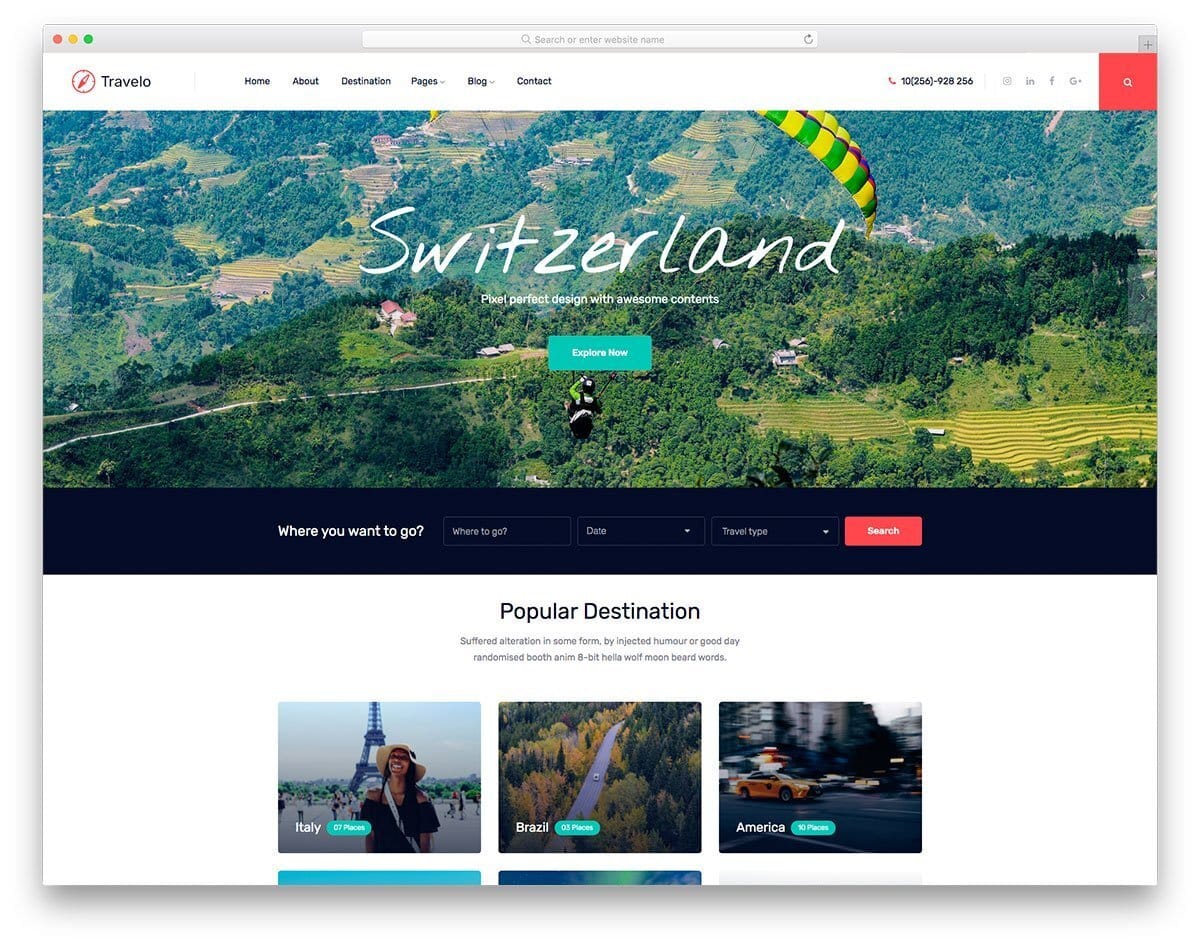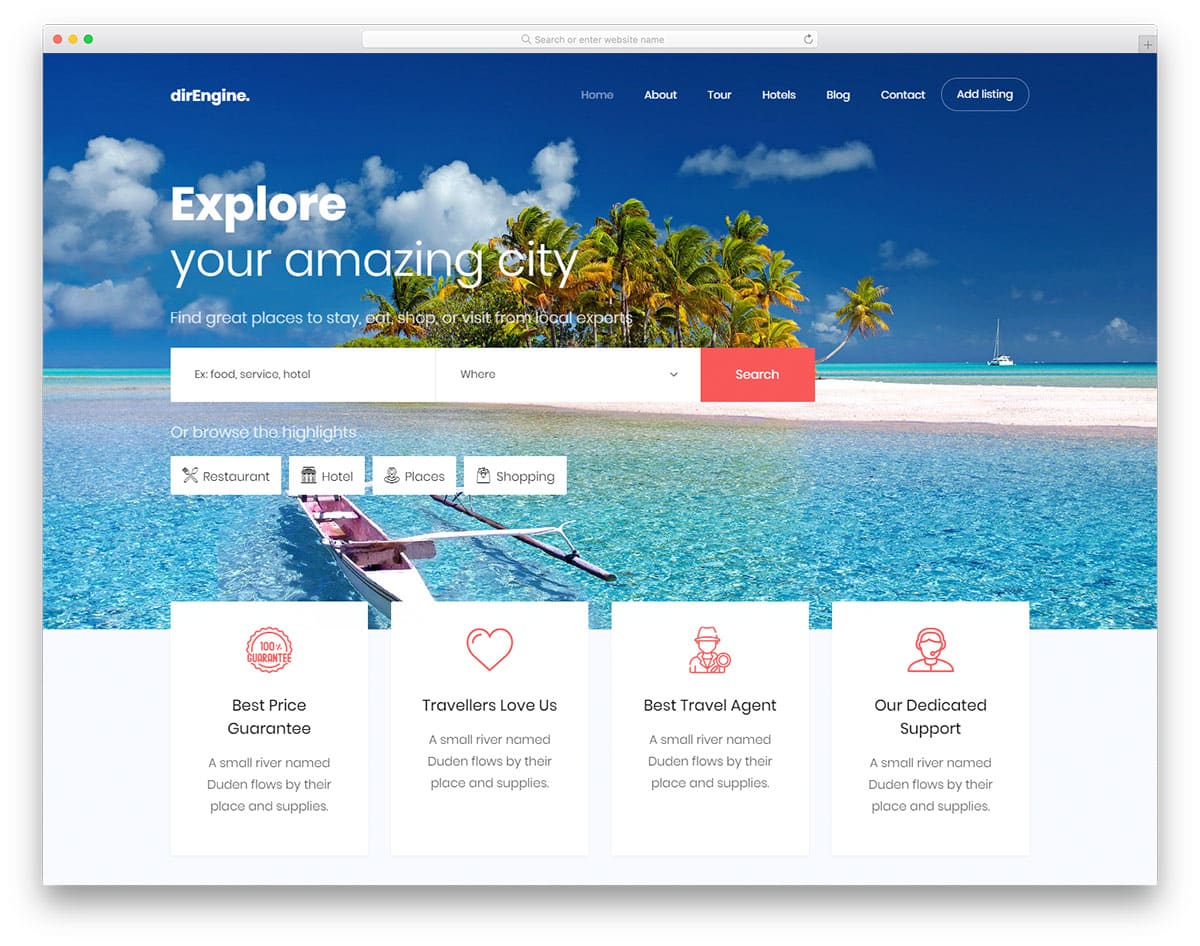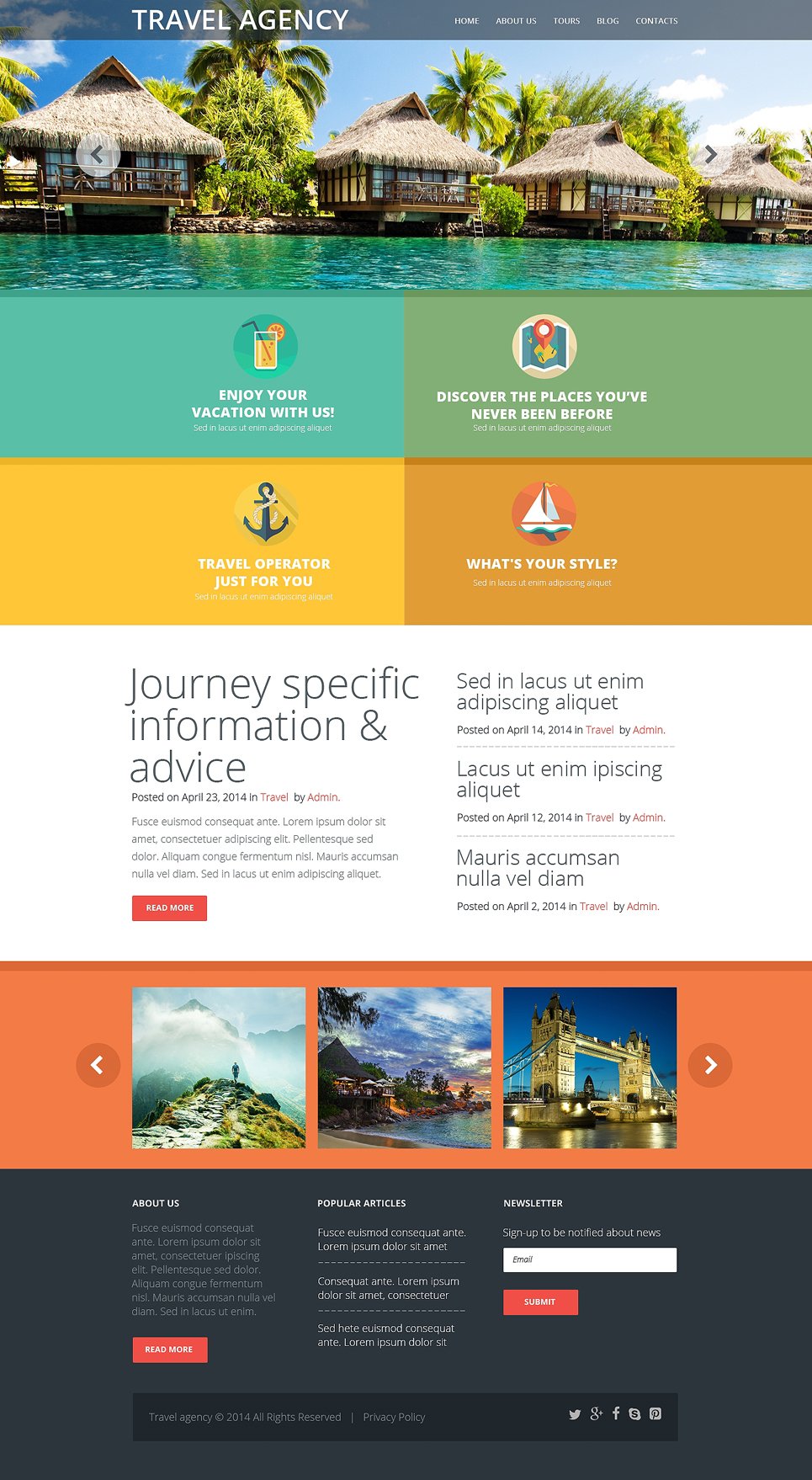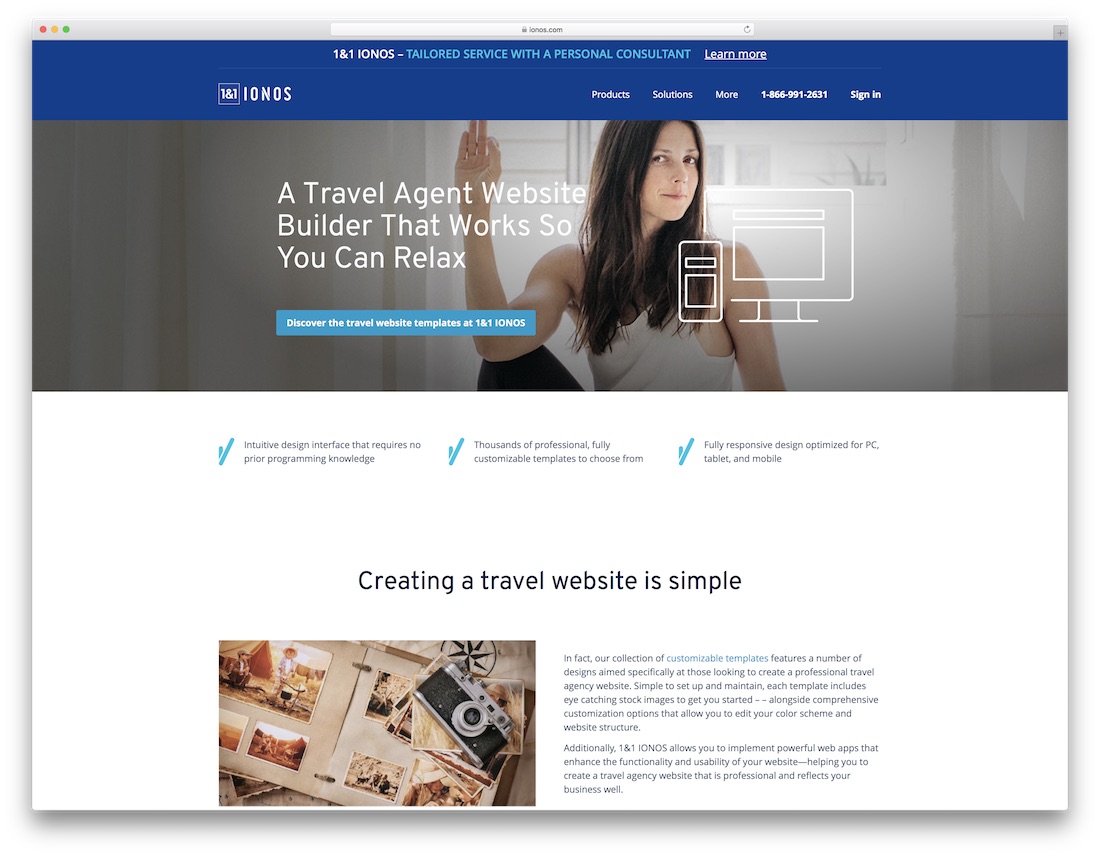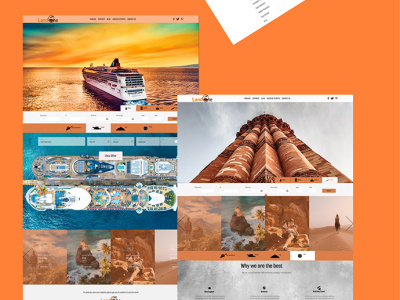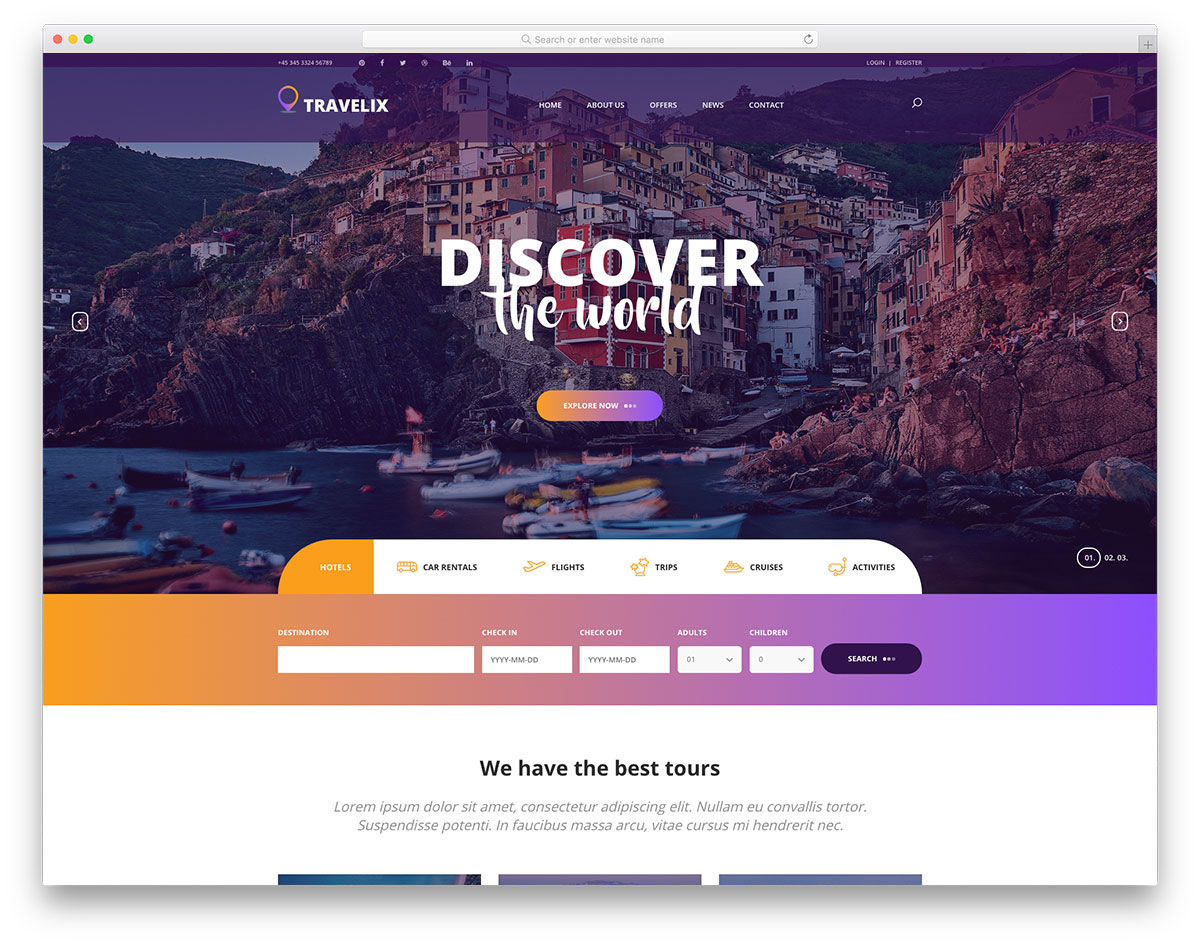Why Travel Agencies Need a Professional Website
In today’s digital age, having a professional website is no longer a luxury, but a necessity for travel agencies. A well-designed website is essential for establishing credibility, increasing online visibility, and engaging with customers. A travel agency website design should be tailored to meet the unique needs of the industry, providing an intuitive and user-friendly experience for potential customers.
A professional website design for travel agencies can help to increase online bookings, improve customer satisfaction, and enhance the overall reputation of the agency. By incorporating essential features such as easy navigation, high-quality visuals, and clear calls-to-action, travel agencies can create a website that effectively communicates their brand and services.
Moreover, a professional website design can help travel agencies to stay competitive in a crowded market. With the rise of online travel agencies (OTAs) and travel meta-search engines, it’s more important than ever for traditional travel agencies to have a strong online presence. By investing in a professional website design, travel agencies can differentiate themselves from competitors and establish a unique identity in the market.
Furthermore, a well-designed website can also help travel agencies to improve their search engine optimization (SEO). By incorporating relevant keywords, such as “website design for travel agency,” and optimizing meta tags and descriptions, travel agencies can improve their visibility in search engine results pages (SERPs). This can help to drive more organic traffic to the website, increasing the potential for online bookings and revenue.
In conclusion, having a professional website is crucial for travel agencies to succeed in today’s digital landscape. By investing in a well-designed website, travel agencies can establish credibility, increase online visibility, and engage with customers. Whether you’re a small, independent agency or a large, established company, a professional website design is essential for staying competitive and achieving long-term success.
Key Elements of a Travel Agency Website Design
A well-designed website for a travel agency should incorporate several key elements to provide an exceptional user experience. Easy navigation is essential, allowing visitors to quickly find the information they need. This can be achieved through a clear and concise menu, intuitive search functionality, and minimal clutter.
High-quality visuals are also crucial in travel website design. Incorporating stunning images and videos of destinations, accommodations, and activities can help to inspire and engage potential customers. Additionally, clear and concise calls-to-action (CTAs) should be used throughout the website to encourage visitors to take action, such as booking a trip or contacting the agency.
A travel agency website design should also prioritize user experience (UX) and user interface (UI) design principles. This includes ensuring that the website is responsive, meaning it adapts to different screen sizes and devices, and that the layout is clean and uncluttered. Furthermore, the website should be optimized for search engines, incorporating relevant keywords such as “website design for travel agency” to improve visibility in search engine results pages (SERPs).
Other essential features of a travel agency website design include secure booking processes, clear trip information, and customer testimonials. Secure booking processes can help to build trust with potential customers, while clear trip information can help to reduce confusion and increase bookings. Customer testimonials can also help to build credibility and trust, showcasing the agency’s expertise and commitment to customer satisfaction.
In terms of website design trends, travel agencies should consider incorporating elements such as minimalism, storytelling, and interactive elements. Minimalism can help to create a clean and uncluttered design, while storytelling can help to engage and inspire potential customers. Interactive elements, such as quizzes and games, can also help to increase user engagement and encourage visitors to explore the website further.
By incorporating these key elements and design trends, travel agencies can create a website that provides an exceptional user experience, builds trust and credibility, and ultimately drives bookings and revenue.
How to Create a User-Friendly Travel Website
Creating a user-friendly travel website is crucial for providing an exceptional online experience for customers. A well-designed website can help to increase bookings, improve customer satisfaction, and enhance the overall reputation of the travel agency. To achieve this, it’s essential to incorporate intuitive search functionality, clear trip information, and secure booking processes.
Intuitive search functionality is critical for allowing customers to quickly find the information they need. This can be achieved through the use of filters, such as destination, travel dates, and accommodation type. Additionally, the search bar should be prominently displayed and easy to use, with features such as autocomplete and suggested searches.
Clear trip information is also essential for helping customers make informed decisions about their travel plans. This includes providing detailed descriptions of destinations, accommodations, and activities, as well as information about pricing, availability, and booking policies. The website should also include high-quality images and videos to help bring the travel experience to life.
Secure booking processes are critical for protecting customer data and preventing online fraud. This can be achieved through the use of secure payment gateways, such as PayPal or Stripe, and by implementing robust security measures, such as SSL encryption and two-factor authentication.
Other best practices for creating a user-friendly travel website include using clear and concise language, providing easy access to customer support, and incorporating customer reviews and ratings. By following these tips, travel agencies can create a website that provides an exceptional user experience, builds trust and credibility, and ultimately drives bookings and revenue.
In terms of website design for travel agencies, it’s essential to prioritize user experience (UX) and user interface (UI) design principles. This includes ensuring that the website is responsive, meaning it adapts to different screen sizes and devices, and that the layout is clean and uncluttered. By incorporating these principles, travel agencies can create a website that is both visually appealing and highly functional.
By following these best practices and incorporating innovative and creative concepts, travel agencies can create a website that provides an exceptional online experience for customers. Whether you’re a small, independent agency or a large, established company, a well-designed website is essential for staying competitive and achieving long-term success in the travel industry.
The Role of Responsive Design in Travel Website Development
Responsive design plays a crucial role in travel website development, as it ensures that the website provides an optimal user experience across various devices and screen sizes. With the increasing use of mobile devices to book travel, a responsive design is essential for travel agencies to stay competitive and provide a seamless user experience.
A responsive design allows the website to adapt to different screen sizes and devices, ensuring that the layout, images, and content are displayed correctly and are easy to navigate. This is particularly important for travel websites, as users often access them on-the-go, using mobile devices to research and book travel.
The benefits of responsive design in travel website development are numerous. Firstly, it improves the user experience, making it easier for users to navigate and find the information they need. Secondly, it increases mobile-friendliness, allowing users to access the website on their mobile devices without any issues. Finally, it improves search engine optimization (SEO), as search engines favor websites that are mobile-friendly and provide a good user experience.
In addition to responsive design, travel agencies should also consider the importance of flexibility in website design. A flexible design allows the website to adapt to different user behaviors and preferences, providing a personalized experience for each user. This can be achieved through the use of user profiling, which allows the website to tailor its content and layout to each user’s preferences.
Improved user experience is also a key benefit of responsive design in travel website development. By providing a seamless and intuitive user experience, travel agencies can increase user engagement and conversion rates. This can be achieved through the use of clear and concise language, easy-to-use navigation, and prominent calls-to-action.
When it comes to website design for travel agencies, responsive design is a critical component of a successful online strategy. By incorporating responsive design principles, travel agencies can provide a seamless user experience, increase mobile-friendliness, and improve SEO. Whether you’re a small, independent agency or a large, established company, a responsive design is essential for staying competitive and achieving long-term success in the travel industry.
Effective Travel Website Design Trends to Watch
The travel industry is constantly evolving, and website design trends are no exception. To stay ahead of the competition, travel agencies must incorporate the latest design trends into their website design. Some of the most effective travel website design trends to watch include minimalism, storytelling, and interactive elements.
Minimalism is a design trend that emphasizes simplicity and clarity. In travel website design, minimalism can be achieved through the use of clean lines, simple typography, and ample white space. This design trend is effective because it allows users to focus on the content and easily navigate the website.
Storytelling is another design trend that is gaining popularity in the travel industry. Storytelling involves using narrative techniques to engage users and create an emotional connection with the brand. In travel website design, storytelling can be achieved through the use of high-quality images, videos, and customer testimonials.
Interactive elements are also becoming increasingly popular in travel website design. Interactive elements, such as quizzes, games, and virtual tours, can help to engage users and create a more immersive experience. This design trend is effective because it allows users to interact with the website in a more meaningful way and can help to increase user engagement and conversion rates.
Other effective travel website design trends to watch include the use of artificial intelligence (AI) and virtual reality (VR). AI can be used to personalize the user experience and provide users with relevant recommendations and offers. VR can be used to create immersive experiences that allow users to explore destinations and accommodations in a more interactive way.
When it comes to website design for travel agencies, incorporating the latest design trends is essential for staying competitive and providing a unique user experience. By incorporating minimalism, storytelling, interactive elements, AI, and VR into their website design, travel agencies can create a website that is both visually appealing and highly functional.
In addition to incorporating the latest design trends, travel agencies must also ensure that their website is optimized for search engines. This can be achieved through the use of relevant keywords, meta tags, and descriptions. By optimizing their website for search engines, travel agencies can increase their online visibility and attract more users to their website.
Case Study: Successful Travel Agency Website Designs
When it comes to website design for travel agencies, there are several successful examples that can be studied and emulated. Expedia, Booking.com, and Airbnb are three of the most well-known travel agencies in the world, and their websites are a testament to the importance of effective website design.
Expedia’s website is a great example of a well-designed travel agency website. The website features a clean and intuitive layout, with easy-to-use navigation and a prominent search bar. The website also includes high-quality images and videos, as well as customer reviews and ratings.
Booking.com’s website is another example of a successful travel agency website. The website features a simple and user-friendly design, with a focus on ease of use and navigation. The website also includes a wide range of features, such as a price match guarantee and a rewards program.
Airbnb’s website is a great example of a travel agency website that has successfully incorporated innovative and creative concepts. The website features a unique and visually appealing design, with a focus on storytelling and user experience. The website also includes a wide range of features, such as a map view and a price filter.
So, what makes these websites so successful? One of the key factors is their focus on user experience. Each of these websites has been designed with the user in mind, with a focus on ease of use and navigation. They also feature high-quality images and videos, as well as customer reviews and ratings.
Another key factor is their use of innovative and creative concepts. Expedia’s website features a price match guarantee, while Booking.com’s website features a rewards program. Airbnb’s website features a unique and visually appealing design, with a focus on storytelling and user experience.
Finally, each of these websites has been optimized for search engines. They feature relevant keywords, meta tags, and descriptions, which helps to improve their online visibility and attract more users to their website.
By studying these successful travel agency websites, we can gain a better understanding of what makes a website effective and how to incorporate innovative and creative concepts into our own website design.
Common Mistakes to Avoid in Travel Website Design
When it comes to website design for travel agencies, there are several common mistakes to avoid. These mistakes can negatively impact the user experience, search engine optimization, and ultimately, the success of the website.
One of the most common mistakes is a cluttered layout. A cluttered layout can make it difficult for users to navigate the website and find the information they need. To avoid this, it’s essential to keep the layout clean and simple, with a clear hierarchy of information.
Another common mistake is slow loading times. Slow loading times can lead to a high bounce rate, as users become frustrated and leave the website. To avoid this, it’s essential to optimize images, use caching, and minimize the number of HTTP requests.
Poor search engine optimization (SEO) is also a common mistake. Poor SEO can make it difficult for users to find the website in search engine results pages (SERPs). To avoid this, it’s essential to use relevant keywords, meta tags, and descriptions, and to regularly update the website with fresh content.
Not having a mobile-friendly design is another common mistake. With the majority of users accessing websites on their mobile devices, it’s essential to have a mobile-friendly design that adapts to different screen sizes and devices.
Not testing and iterating the website is also a common mistake. Testing and iteration are essential for ensuring that the website is user-friendly and meets the needs of the target audience. To avoid this, it’s essential to conduct regular user testing and make changes to the website based on the feedback received.
Finally, not keeping the website up-to-date is a common mistake. Keeping the website up-to-date is essential for ensuring that it remains relevant and continues to meet the needs of the target audience. To avoid this, it’s essential to regularly update the website with fresh content, and to make changes to the design and functionality as needed.
By avoiding these common mistakes, travel agencies can create a website that provides a positive user experience, is optimized for search engines, and ultimately, drives bookings and revenue.
Best Practices for Travel Website Design and Development
When it comes to website design for travel agencies, there are several best practices to keep in mind. These best practices can help ensure that the website is user-friendly, visually appealing, and optimized for search engines.
Testing and iteration are essential for ensuring that the website meets the needs of the target audience. This involves conducting regular user testing and making changes to the website based on the feedback received.
Ongoing maintenance is also crucial for ensuring that the website remains relevant and continues to meet the needs of the target audience. This involves regularly updating the website with fresh content, and making changes to the design and functionality as needed.
Search engine optimization (SEO) is also important for ensuring that the website is visible in search engine results pages (SERPs). This involves using relevant keywords, meta tags, and descriptions, and regularly updating the website with fresh content.
Mobile-friendliness is also essential for ensuring that the website is accessible on a range of devices. This involves using responsive design, which adapts to different screen sizes and devices.
Finally, it’s essential to keep up-to-date with the latest trends and technologies in website design for travel agencies. This involves regularly researching and implementing new design trends and technologies, such as artificial intelligence (AI) and virtual reality (VR).
By following these best practices, travel agencies can create a website that provides a positive user experience, is optimized for search engines, and ultimately, drives bookings and revenue.
In addition to these best practices, it’s also essential to consider the importance of accessibility in website design for travel agencies. This involves ensuring that the website is accessible to users with disabilities, and that it meets the Web Content Accessibility Guidelines (WCAG 2.1).
By incorporating these best practices into their website design and development, travel agencies can create a website that is both visually appealing and highly functional, and that provides a positive user experience for all users.

